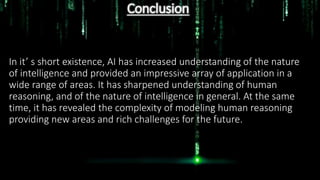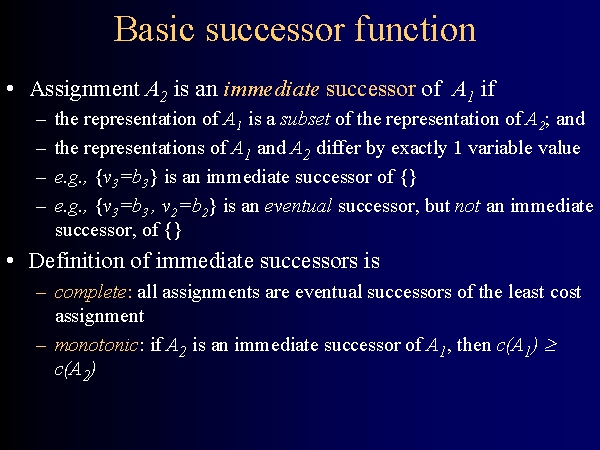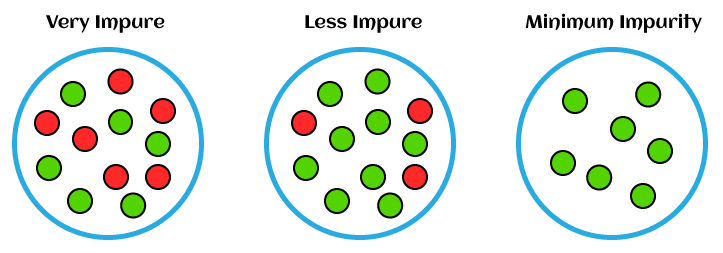The Bible is one of the most influential texts in history, guiding millions of people in their daily lives with its teachings and wisdom. The concept of artificial intelligence, on the other hand, is a relatively new development that has only recently begun to shape our world. These two seemingly unrelated topics may not have been discussed together in the past, but as technology advances and becomes more integrated into our lives, it’s natural to wonder: what does the Bible say about artificial intelligence?
While the Bible doesn’t explicitly mention artificial intelligence, there are several passages that touch on the themes and ideas that are associated with it. From discussions about the nature of humanity to warnings about the dangers of playing God, there are many ways that the Bible’s teachings can be applied to the world of AI. In this article, we’ll explore some of these connections and consider what they might mean for the future of technology and faith.

What Does the Bible Say About Artificial Intelligence?
Artificial Intelligence (AI) is a rapidly growing technology that is being used in a variety of ways in everyday life. As technology advances and AI becomes more commonplace, many people are wondering what the Bible has to say about the use of AI. This article will explore the biblical perspective on AI and provide insight into how the Bible might guide us in our use of this technology.
History of Artificial Intelligence
Artificial Intelligence (AI) is a broad term used to describe computer systems that are capable of performing tasks that would normally require human intelligence. AI has been in development since the 1950s and has been used in a variety of ways, from medical diagnosis to autonomous driving. AI has come a long way in the last few decades and is now being used in a variety of industries from finance to healthcare.
AI is becoming increasingly popular as it can help to automate repetitive tasks and make processes more efficient. AI can also be used to improve decision making by providing insights and data-driven recommendations. AI is now being used to automate a variety of tasks, from customer service to financial analysis.
Biblical Perspective on Artificial Intelligence
The Bible does not explicitly mention AI, but it does provide general guidance on how technology should be used. In Genesis 1:26-28, God instructs humanity to “subdue the earth and have dominion over it”. This passage implies that humanity is responsible for the stewardship and use of the earth, and this should include the use of technology. The Bible also speaks to the importance of living a life that is guided by wisdom and discretion.
The Bible also provides guidance on how to use technology responsibly. In Proverbs 1:5, the Bible states “Let the wise listen and add to their learning, and let the discerning get guidance”. This verse implies that wisdom should be used in all aspects of life, including the use of technology. It is also important to remember that with great power comes great responsibility. As we use technology for our own benefit, we must also consider how it will impact others and how it will fit into God’s overall plan.
Conclusion
The Bible provides general guidance on how technology should be used and how we should use wisdom and discretion when making decisions. As AI continues to become more commonly used, it is important to remember to use it responsibly and to consider how it will impact others. In all things, we must strive to use technology in a way that brings glory to God.
Frequently Asked Questions
The Bible has no direct mentions of artificial intelligence, but it does have many references to wisdom, knowledge, and understanding. This article will explore what the Bible has to say about these topics and how they relate to artificial intelligence.
What does the Bible say about wisdom?
The Bible makes many references to wisdom, describing it as a gift from God that can be sought after and acquired. Proverbs 2:6 states, “For the LORD gives wisdom; from his mouth come knowledge and understanding.” This implies that wisdom comes from God and is something that should be sought after and valued. The Bible also tells us that those who are wise are blessed, as Proverbs 3:13-14 states, “Blessed is the one who finds wisdom, and the one who gets understanding, for the gain from her is better than gain from silver and her profit better than gold.” This passage suggests that wisdom is valuable and should be sought after.
What does the Bible say about knowledge?
The Bible also makes many references to knowledge, describing it as an important attribute that is required to achieve wisdom. Proverbs 2:10-11 states, “When wisdom enters your heart, and knowledge is pleasant to your soul, discretion will preserve you, understanding will keep you.” This passage implies that knowledge is necessary to gain wisdom and understand how to apply it in life. The Bible also encourages us to seek knowledge, as Ecclesiastes 1:18 states, “For in much wisdom is much vexation, and he who increases knowledge increases sorrow.” This passage suggests that knowledge can be difficult to seek, but it can also bring great rewards.
What does the Bible say about understanding?
The Bible also makes many references to understanding, describing it as an important step in gaining wisdom. Proverbs 4:7 states, “Wisdom is the principal thing; therefore get wisdom: and with all thy getting get understanding.” This passage implies that understanding is necessary to gain wisdom and use it to make decisions in life. The Bible also tells us that those who lack understanding will fail, as Proverbs 14:18 states, “The simple inherit folly: but the prudent are crowned with knowledge.” This passage suggests that understanding is essential for success.
How does the Bible relate to artificial intelligence?
The Bible does not directly mention artificial intelligence, but it does emphasize the importance of wisdom, knowledge, and understanding. These three traits are essential for artificial intelligence, as they allow artificial intelligence to learn, develop, and make decisions. Therefore, the Bible’s advice can be seen as applicable to artificial intelligence.
What is the importance of wisdom, knowledge, and understanding for artificial intelligence?
Wisdom, knowledge, and understanding are essential for artificial intelligence, as they allow artificial intelligence to learn and make decisions. Wisdom allows artificial intelligence to identify patterns in data and make informed decisions based on those patterns. Knowledge gives artificial intelligence the ability to store and recall information, which is necessary for decision-making. Understanding allows artificial intelligence to interpret data in meaningful ways and draw conclusions from it. Therefore, wisdom, knowledge, and understanding are essential for artificial intelligence to function properly.
Is artificial intelligence predicted in the Bible? | John Lennox
In conclusion, the Bible does not directly address artificial intelligence. However, it does provide guidance on how we should interact with the world around us. As we continue to develop and integrate AI into our lives, we must ensure that we use it in a way that aligns with the biblical principles of love, compassion, and accountability.
Ultimately, the impact of AI on our society will depend on how we choose to use it. As Christians, we have a responsibility to approach this technology with wisdom and discernment, seeking God’s guidance in all that we do. By doing so, we can ensure that AI is used to enhance our lives and uphold the values that are central to our faith.



